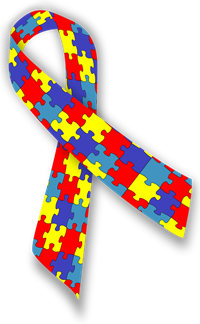Evasive Eyes and Excessive Honesty
 I first noticed that I had a problem looking people in the eyes in high school. I realized that I was supposed to look people in the eyes when I talked to them, but – for a reason I wouldn’t fully understand until earlier this year – it made me uncomfortable. I could look someone in the eyes for a minute or two. Perhaps more if I felt really comfortable with the person and/or subject being discussed. However, the longer I looked at their eyes, the more uncomfortable I became.
I first noticed that I had a problem looking people in the eyes in high school. I realized that I was supposed to look people in the eyes when I talked to them, but – for a reason I wouldn’t fully understand until earlier this year – it made me uncomfortable. I could look someone in the eyes for a minute or two. Perhaps more if I felt really comfortable with the person and/or subject being discussed. However, the longer I looked at their eyes, the more uncomfortable I became.
Flash forward to the present day and this is something NHL struggles with. He will look away from people as they talk to him, sometimes even engaging in completely unrelated activities. It seems like he’s simply not paying attention, but he is. If prompted, he can give a full accounting of what he was told. When he’s the one doing the talking, he rarely will look you in the eyes. In fact, he’ll often begin a conversation and keep talking "to you" as he leaves the room. (Something, I must note, that I used to do when I was young.) It’s as if he completely doesn’t realize that a conversation is over if the two people are no longer near each other.
And he doesn’t.
Kids (and adults) with Asperger’s don’t understand the "rules of social conduct" the way neuro-typical people do. They can learn, but it can take years of hard work while neuro-typical people, having taken knowledge of the ins and outs of social conduct for granted, look upon them as "weird" and "strange."
Even now, I struggle, though I’ve developed some coping mechanisms without realizing it. For example, if I’m talking to a person who is far enough away from me, I fix my eyes on a spot just behind their head. It appears that I’m looking at their eyes, but instead I’m looking at a lamp or painting. If I’m too close for that, I’ll focus on their nose or mouth instead. It’s close enough to the eyes to give the illusion of looking at the person’s eyes, but doesn’t make me as uncomfortable.
Another area that people with Asperger’s struggle with is lying or omission of knowledge. I can be honest to a fault. Keeping information from a person or telling them a lie is very stressful to me. I can do it for small items (for example, if I’m going to surprise B with a birthday present), but for larger items it becomes tricky.
NHL has this problem as well. If a stranger asks him how his day went, he’ll start a long-winded story about every detail of his day. Every level of every game played, every second of every movie watched, etc. All the person was looking for was a "pretty good" with perhaps one concise example. Instead, they get the whole enchilada. NHL can’t lie either. He can (and often will) try, but his attempts at lying are so transparent that they invariably fall flat.
You might think excessive honesty would be a good thing, but it can be very tricky when you find you need to keep something a secret. Once, while trading in my car and buying a new one, I let slip that the transmission might be going on the old car. I don’t know why I said it and immediately knew I shouldn’t have said it, but the words were already out of my mouth. It wasn’t like we were trying to cheat the dealer. The transmission was just a theory we had (not a mechanic-diagnosed problem) and the dealer hadn’t asked me about any problems the car might be experiencing. Still, the information was inside me and it was like it forced its way out without me being able to stop it. My inability to withhold information most likely negatively affected the trade-in price we were given.
So if you ever meet me or NHL and we talk your ear off about something we’re excited about while looking at something else, please be patient. We’re not intending to be rude. We’re just trying to fit into what is often a strange, confusing, and over-whelming neuro-typical world.
NOTE: The Autism Awareness ribbon icon above was created by Melesse and comes from Wikimedia Commons.

Ah yes, the eyes. I have to use conscious effort when it comes to doing this…both to look someone in the eye in the first place, and not to look so intently as to be creepy about it.
Christina Gleason @ WELL, in THIS House recently posted..Fudgy Almond Flour Brownies Recipe